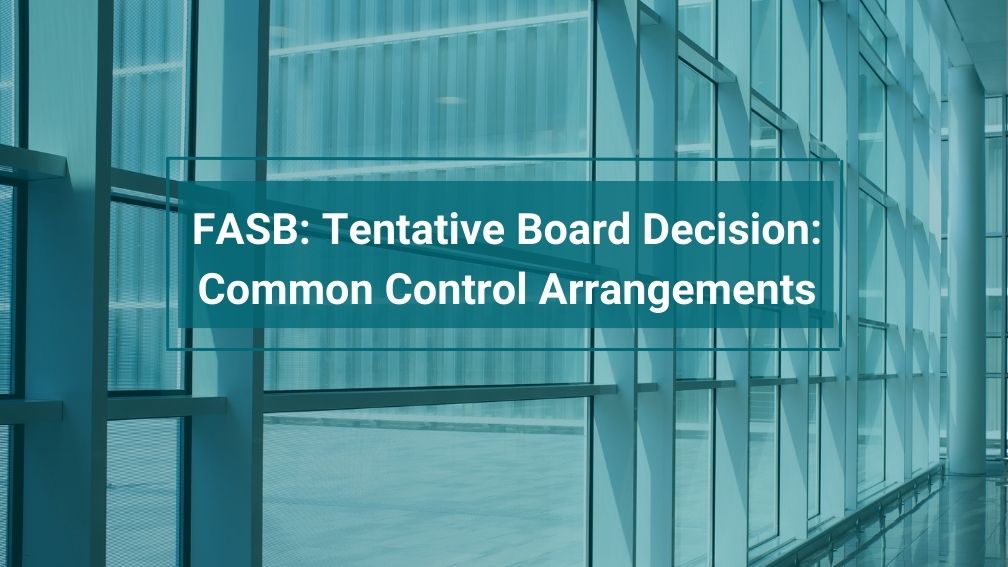FASB Tentative Board Decision: Common Control Arrangements Explained
Last Updated on March 23, 2023 by Morgan Beard
On February 15, 2023, FASB held a board meeting and reached a tentative board decision relating to leases under common control arrangements. As ASC 842 currently stands, companies with leases under common control arrangements are required to determine the legally enforceable terms and conditions that are explicitly in the contract as well as factors outside of the written agreement.
For example, while the term of an arrangement may be explicitly limited to six months, however, factors outside the contract may indicate that the term is longer. As a result, it was the entity’s duty to determine the terms and conditions of the lease, even when it wasn’t written into the contract. The determination of whether terms and conditions not written in a lease agreement create enforceable rights and obligations to the parties subject to the lease involves judgment and, in some cases, may involve legal questions that should be evaluated with the assistance of legal counsel.
Since this can be complex and not cost effective, FASB listened to the requests to change this guidance and finally announced a tentative board decision to make this better.
FASB has offered private companies with leases between entities under common control to utilize a practical expedient to use the written terms and conditions when determining the following:
- Whether a lease exists
- Lease Classition
- Subsequent Accounting
This may be applied on an arrangement by arrangement basis.
An entity applying this practical expedient is no longer required to determine if these written terms and conditions are legally enforceable. However, if there are no written terms, the entity is required to determine the legal enforceability of the arrangement.
In adopting this practical expedient, an entity can adopt either apply this:
- Prospectively to all leases that commence on or after the date of adoption of this accounting standard update
- Retrospectively beginning of the earliest period presented in accordance with ASC 842 for arrangements still in place at the date of adoption of the final update. If a lease has terminated before this update, it will not be applicable.
What is also a great added benefit, the FASB is permitting entities to document an existing unwritten terms and conditions of a common control arrangement before the entities first financial statements issued with the practical expedient. Therefore, to make your accounting a little easier, we suggest documenting those terms and conditions! To read more on this check out our blog how to streamline your lease accounting polices and controls.
Another topic they discussed was accounting tor leasehold improvements associated with common control leases. Based on their review, these should be:
- As long as the lessee controls the use of the underlying asset, it should be amortized by the lessee over the useful life of the leasehold improvements. As soon as a lessee no longer controls the use of the underlying asset, it should be treated as a transfer between entities as an adjustment to equity.
- If the lessor obtained the underlying asset through a lease with another entity not within the same common control group, the amortization period should not exceed the lease term associated with the other entity.
The FASB also reminded everyone that leasehold improvements are also subject to impairment guidance.
The effective date is for all entities for fiscal periods beginning after 12/13/2023, with early adoption permitted.
For more information on this tentative decision, refer here.
